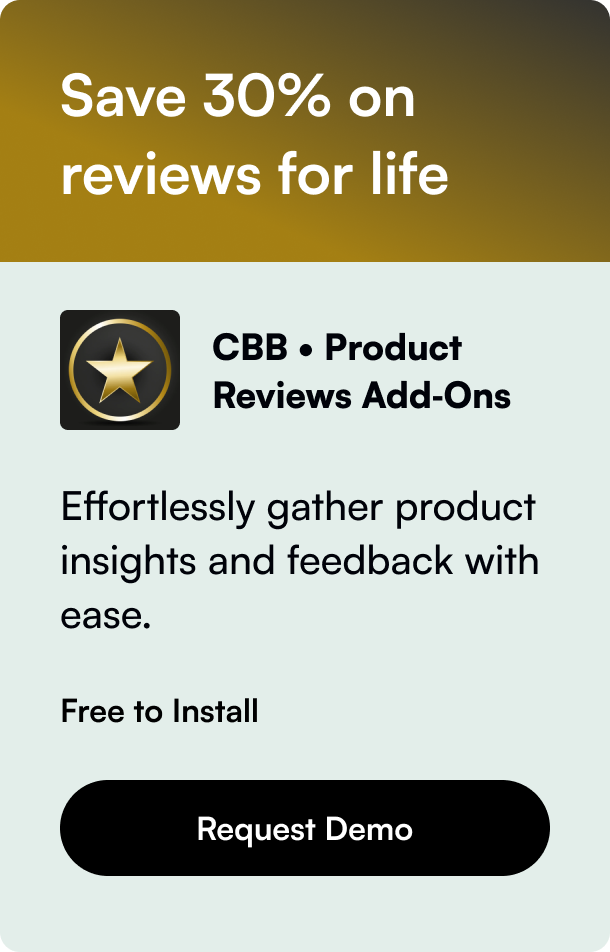Table of Contents
- Introduction
- What is an LLC? And Why Consider One for Your Shopify Store?
- Is an LLC Mandatory to Sell on Shopify?
- LLC vs. Sole Proprietorship: Weighing Your Options
- Do You Need a Business License to Sell on Shopify?
- Final Thoughts: Balancing Legal Protection with Business Needs
- FAQ Section
Starting an online store on Shopify is an exciting venture for entrepreneurs. It presents a world of endless possibilities, from reaching a global audience to tapping into various niches. However, amidst the excitement of choosing the perfect theme and listing your first products, there's a crucial question that often arises: Do you need an LLC to sell on Shopify?
Introduction
Imagine you've set the stage for your Shopify store - your products are ready to go, your marketing strategy is in place, and you're just about to hit that launch button. But then, a thought crosses your mind, halting your enthusiasm: "Should I form an LLC before selling on Shopify?" This question is more common than you might think and touches on the vital aspects of legal structure, liability protection, and taxation for online businesses.
In this comprehensive blog post, we will navigate through the ins and outs of whether an LLC is necessary for selling on Shopify. By discussing the benefits of an LLC, comparing it with sole proprietorships, and exploring business license requirements, we aim to provide you with a clearer picture. Whether you're a seasoned entrepreneur or just starting out, understanding these legalities can significantly impact your business journey on Shopify.
What is an LLC? And Why Consider One for Your Shopify Store?
An LLC, or Limited Liability Company, is a business structure that combines the simplicity and flexibility of a sole proprietorship with the liability protection of a corporation. This setup is designed to shield your personal assets, such as your home or savings, in the event your business faces legal trouble or incurs debt.
For Shopify sellers, forming an LLC can be particularly appealing for several reasons:
- Personal Liability Protection: Keeping your personal and business assets separate provides a safety net, reducing the risk to your personal finances from business-related legal actions.
- Tax Benefits: LLCs enjoy pass-through taxation, meaning the business income passes through to the owner's personal tax return, possibly leading to tax savings.
- Credibility and Trust: Having an LLC might boost your business's credibility with customers and suppliers, which is crucial for building a strong brand reputation online.
- Flexibility: LLCs offer managerial and operational flexibility, making it easier to adjust to the changing dynamics of an e-commerce business.
Is an LLC Mandatory to Sell on Shopify?
The straightforward answer is no, Shopify does not require you to form an LLC to start selling on their platform. You can operate as a sole proprietorship, partnership, or choose another legal structure that suits your needs. However, deciding on whether to form an LLC should be based on your business goals, risk tolerance, and financial considerations.
LLC vs. Sole Proprietorship: Weighing Your Options
Many Shopify store owners start as sole proprietors by default, which means their business and personal assets are considered one and the same. This simplicity comes with its perks, such as ease of setup and straightforward tax filing. However, the major downside is the personal liability for business debts and legal issues, which could put your personal assets at risk.
On the other hand, an LLC offers a layer of protection by legally separating your personal assets from your business. While there's more paperwork and potential costs involved, the benefits of personal liability protection and potential tax advantages make LLCs an attractive option for many Shopify sellers.
Do You Need a Business License to Sell on Shopify?
Another common question is whether Shopify sellers need a business license. The answer depends on your location and the nature of your business. Generally, there is no federal requirement for a business license to sell online, but local laws vary. Some cities or states may require a business license based on your product type or business activities. It's essential to research your local regulations to ensure compliance.
Final Thoughts: Balancing Legal Protection with Business Needs
Deciding on the right legal structure and obtaining any necessary licenses are foundational steps toward building a successful Shopify store. While an LLC offers considerable benefits, especially in terms of legal protection and potential tax advantages, it's not a one-size-fits-all solution.
Your decision should be influenced by the specific needs and future plans of your business, perhaps with input from a legal or financial advisor. Keeping your business compliant and protected will allow you to focus on what you do best - growing your Shopify store and serving your customers.
FAQ Section
-
Can I switch to an LLC later if I start as a sole proprietorship?
- Yes, you can transition to an LLC as your business grows and your needs change. It's a common path for many entrepreneurs.
-
How do I go about forming an LLC for my Shopify store?
- The process varies by state, but generally involves choosing a business name, filing Articles of Organization with your state's business filing office, and possibly creating an Operating Agreement.
-
Are there ongoing costs associated with maintaining an LLC?
- Yes, there may be annual fees, state-specific taxes, or reporting requirements to keep your LLC in good standing.
-
Does having an LLC affect how I pay taxes for my Shopify store?
- While an LLC itself doesn't change your tax rates, the pass-through taxation can offer benefits, and you may be eligible for certain deductions. Consult a tax professional for advice tailored to your situation.
-
Can forming an LLC protect me from all business liabilities?
- While an LLC provides significant protection by separating personal and business assets, it doesn't make you immune to all liabilities. It's important to operate your business ethically and consider liability insurance for comprehensive coverage.








